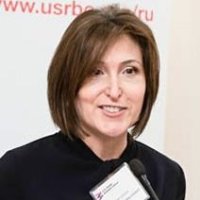Jackson-Vanik after Russia’s Accession to the WTO (Offsite)
“The post-Duma election protests highlight what has changed in twenty years of post-Soviet Russia, but also the distance the country still has to travel to become a more open society,” said Jane Harman, CEO and President of the Woodrow Wilson Center while opening a 13 December 2011 Wilson Center on the Hill briefing on the status of Jackson-Vanik legislation following Russia’s accession to the WTO. “Some may look at the ugliness of the past weekend and conclude that now is not necessarily the right time to graduate Russia from the Jackson Vanik amendment. But I respectfully disagree. I fully recognize the importance of this landmark legislation, and how it has come to symbolize the principles and legacy of [Senator Henry] Scoop Jackson, but I personally believe its purpose has been served, particularly with regard to Russia.” Russia was formally invited to accede to the WTO on December 16, 2011, capping a series of negotiations that started in 1993.
Richard Perle, Resident Fellow, American Enterprise Institute, declared that the Jackson-Vanik legislation of 1973, which he helped to author as a member of Senator Jackson’s staff, should have ceased applying to Russia long ago. The language of the amendment is very precise: it applies to states with non-market economies that restrict emigration. Perle noted that policymakers in Washington have found it convenient to continue applying the amendment to Russia as leverage to influence their behavior. “I share people’s distaste with events in Russia today. No one is happy with assaults on human rights. I don’t want to do Russia any favors, but the law is the law and it is a corruption of the legislation to pretend that the provisions continue to apply in Russia’s case,” stressed Perle. At the same time, Perle continued, the legislation itself should remain on the books. Repealing it outright would be a gift to those in Russia who would take it as a symbolic victory. Once Russia is removed from the provisions of Jackson-Vanik, the U.S. administration and congress should actively challenge Russia on issues of disagreement and concern, including Iran, the safety of journalists, and political trials.
Once Russia’s parliament ratifies its accession to the WTO, the United States will be forced to make a decision on Jackson-Vanik’s application to Russia. Unless the United States extends Permanent Normal Trade Relations (PNTR) to Russia, and thereby remove Russia from the terms of Jackson-Vanik, we will not enjoy the benefits of Russia’s obligations under the very WTO provisions that were in large part fought for by U.S. negotiators, according to Randi Levinas, Executive Vice President, U.S.-Russia Business Council. U.S. companies will then be at a competitive disadvantage with all other WTO members in the Russian market.
The trade turnover between Russia and the United States is not particularly large today. Russia is the 37th largest U.S. export market, and only 4 percent of Russian imports come from the United States. However, Levinas contended, the key factor in the relationship is not the static question of “how much” trade there is, but “what” goes into that relationship and the potential for the future. Today, approximately half of our exports to Russia have been in machinery, chemicals, and transportation. In addition to large American corporations like Coca-Cola or John Deere that are active in Russia, there are small American companies that export goods such as motorcycles, pre-fabricated buildings, and agricultural fans. The potential for trade in future, and room for growth, is enormous. Russia is the 9th largest economy in the world and Europe’s largest consumer market. Russia is the tenth largest automotive market in the world is projected to grow to the sixth largest by 2015. To modernize its economy, from infrastructure to information technology to energy efficiency, Russia will need to invest hundreds of billions of dollars in the coming years. “It is part of our member firms’ global competitiveness strategy to be present and operate in Russia, and only by extending PNTR to Russia can we ensure that American companies will stay in the game,” Levinas said. “We want to create and sustain U.S. jobs, and Russia is part of that global equation.”
“There has been an interesting history of a dichotomy of interests between business and the human rights community in Russia over the years. Today, those interests align,” said Lara Iglitzin, Executive Director, Henry M. Jackson Foundation, which has been supporting human rights groups in Russia since 1989. According to Iglitzin, the Jackson-Vanik legislation was the first instance where the concept of human rights was interjected into U.S. policy in a meaningful way. It was landmark legislation, but it no longer applies to Russia, and the human rights community in Russia shares this view, said Iglitzin.
Instead, human rights watchers and U.S. policymakers must rely on new and different tools to try to exert influence on the human rights situation. The first necessary step would be to support the human rights community in Russia, particularly in building the capacity of the next generation of Russians to work with the press and the police. While outside funding always attracts negative attention from the Russian government, there is no domestic alternative as such support is politically dangerous for potential supporters. She called for the U.S. government to have an active voice on the human rights situation in Russia, and take active measures ranging such as the contemplated visa bans in reaction to the death of Russian lawyer Sergei Magnitsky in pretrial detention. Finally, the United State should support the efforts of the European Court of Human Rights in their efforts to hold Russia to their commitments on human rights as a member of the Council of Europe. “As we decry Russia’s turn from freedom, we need new tools for 2012 and beyond,” Iglizin concluded.
By F. Joseph Dresen
Blair Ruble, Director, Kennan Institute
Speakers


Hosted By

Kennan Institute
The Kennan Institute is the premier US center for advanced research on Eurasia and the oldest and largest regional program at the Woodrow Wilson International Center for Scholars. The Kennan Institute is committed to improving American understanding of Russia, Ukraine, Central Asia, the South Caucasus, and the surrounding region though research and exchange. Read more
